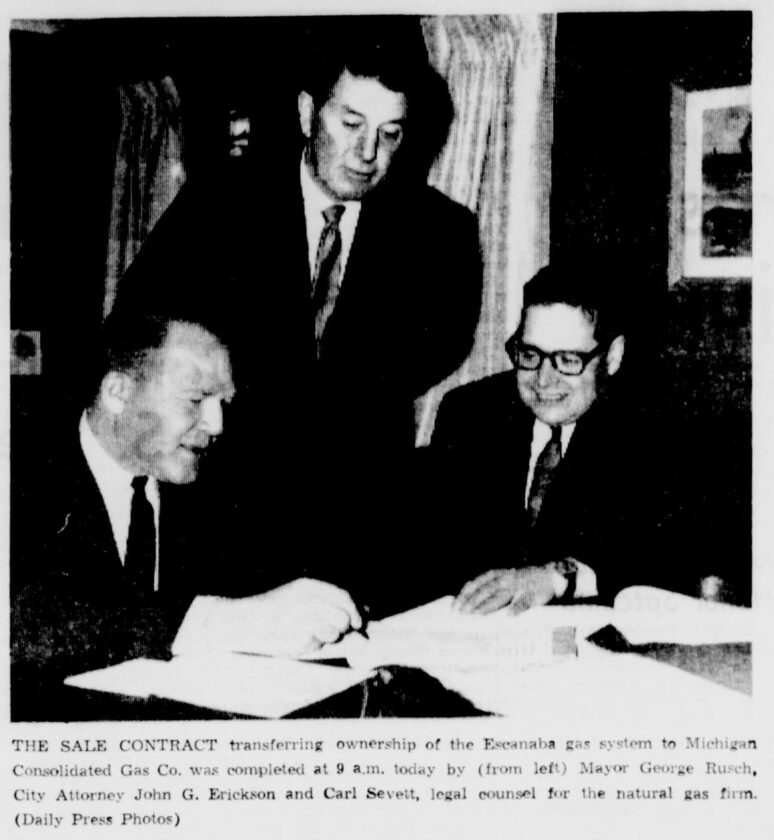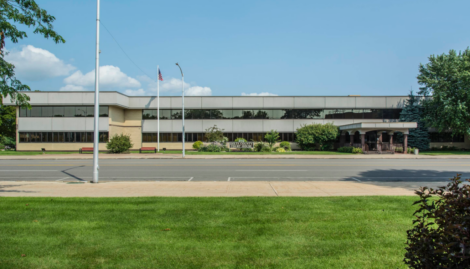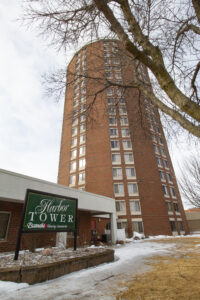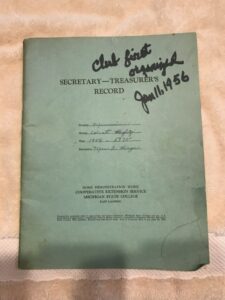Proposal to reallocate gas funds fails in Escanaba

This file photo from June 11, 1965, shows the contract being finalized for the sale of Escanaba's gas utility. The city fell short in Tuesday's vote to gain approval to repurpose the money from that sale to pay debts to Escanaba’s retirement plan.
ESCANABA — A proposal to use funds from a 1965 city utility sale to pay debts to Escanaba’s retirement plan fell short in Tuesday’s vote.
Only 825 voters, or 50.93%, said “yes” to the proposal, which required three-fifths approval to remove the 60-year-old restrictions on how certain moneys could be used. Voting “no” were 795, or 49.07%.
In 1965, a proposal presented to Escanaba voters asked them to sell the then-municipally owned gas system to Michigan Consolidated Gas Company, who had offered the city $725,000 — equivalent to more than $7 million today. That June, 81.4% of voters who turned out to the polls backed the sale, which was finalized June 11, 1965.
Today, DTE Energy is the gas utility serving Escanaba; DTE merged with MCN, the parent of Michigan Consolidated Gas Company, in 2001.
By a second referendum in November 1965, Escanaba voters approved investing the $1 million from the sale and using only the annual interest of about $42,000 — about $430,000 today — for capital improvements.
Fast-forward a handful of decades, and the city’s position is the amount the fund contains is not being used effectively.
“This fund has never been allowed to grow,” City Manager Jim McNeil said at a city council meeting in August, reporting the fund contains a little more than $1 million in 2025 — which would have been worth $100,000 in 1965, less than one-tenth of what the utility sold for.
Escanabans in 1965 declared the principal funds could only be used on “investments,” but there are very limited options on what constitutes acceptable investments, as per Michigan Public Act 20 of 1943. The interest it draws in now, which can be used for capital improvements, currently amounts to about $30,000 to $50,000 a year, “which doesn’t get all that far today,” as McNeil put it.
So instead, the city sought to use the money elsewhere — specifically, a debt that weighs on the city budget each year. Escanaba owes an outstanding balance of about $11.5 million toward pension plans for past city employees. The city did away with pension plans more than a decade ago, so this is an old debt that is 70% paid. With the current budgeting plan, the city is to pay $1.7 million towards the liability in the 2026 fiscal year. Payments are scheduled to continue until 2033.
Officials suggested changing the rules around the utility sale money so it could be applied the unfunded pension liability.
“By allowing the 1965 funds to be used, this burden can be shared more fairly across generations, reducing the strain on today’s taxpayers and ratepayers,” read a news release from the city promoting the proposal before the vote.
That release, signed by McNeil, added that by investing in a pension fund, the money would target a 7.25% rate of return, about 3% higher than it does in the investment fund, and could accrue close to $500,000 in 10 years if a million sat in the account for 10 years. However, that would not be possible if portions from the amount were going to be used to pay into the debt annually until 2033.
The city’s argument failed to win over enough voters, so the restrictions on the gas utility sale money remain in place.
“By voting ‘no,’ the city has forgone the opportunity to leverage the principal of this fund for higher investment returns, which represented a chance to generate millions of dollars in savings over the next several decades,” McNeil said of Tuesday’s results. “Instead, the city must continue to rely on making large annual contributions from our general operating budget. This decision will continue to impair budgets across departments and pressure utility ratepayers.”






